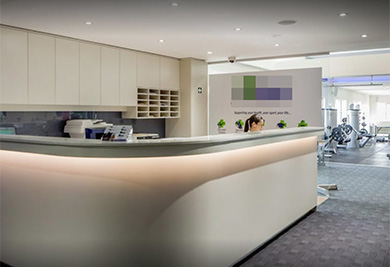Sore neck, headaches, weight gain, back pain, cankels, sore feet – does this sound familiar?
As a male I’m lucky enough to not have to consider the implications of pregnancy on my body, but my partner will (when it comes time!). Yes as wonderful as the news and reality of being pregnant is, it is not without its drawbacks. And yes, you are performing a miracle bringing new life into this world, but does it HAVE to be so taxing on your body?
Yes.
Just kidding. It doesn’t have to be as debilitating as you are lead to believe. Lets talk about why:
During pregnancy the body releases an increased volume of the hormone Relaxin into the blood stream in a response to a metabolic need; which helps the mother’s cardiovascular and renal systems better tolerate the demands of the growing fetus. It does this by breaking breaking down the collagenous bonds within the vessel walls and allowing them to stretch.

It is also the hormone that relaxes the pubic symphysis to prepare the body to birth the child (causing a 1 cm dilation). Unfortunately the effects of relaxin aren’t isolated to the aforementioned systems and joints – it affects all of them. Relaxing the ligaments supporting the lower back, knees and feet.

The lower back arch (lumbar lordosis) starts to exaggerate due to the softened ligaments, growing baby (and weight gain), and inability of the muscles to control the tilting of the pelvis.

The feet start to flatten out, getting wider and longer (notice your shoes getting tight?) and putting increased strain on the plantar fascia and musculature of the feet and lower legs to support the weight of the body and growing baby! Leading to an abundance of injuries to choose from (Plantar Fasciitis, Achilles Tendonitis, Tibialis Posterior Dysfunction etc.)

he knees potentially get the most damage from pregnancy, being the coupling joint between the back and feet means they get affected from both ends – essentially twisting and buckling the knee’s in together and resulting in straining of the ligaments, menisci and cartilage. Women are disproportionately more susceptible to knee arthritis and pregnancy is a huge factor playing a role in its presentation!
It sounds all Doom and Gloom. Is there anything I can do to offset the changes?
Of course – the best defense is a solid offence, right? And by offence I mean Preventative Health Care. Keep reading for some tips:
Back
You will want to strengthen your core muscles to prepare your back for the increased load it will endure for the next 9 months! Early on you can consider exercises such a crunches and planks, but later on in the pregnancy you will want to be looking for guidance from a Physiotherapist or Pilates instructor to make sure your not putting yourself or your baby at risk! If you get headaches or neck pain strengthening your core can potentially help as it reduces the curvatures on your spine and reduces strain on the neck muscles!
Feet

You will need to ensure you are wearing appropriate supportive footwear – heels will increase the load on your lower back (and forefoot) and will offset any strength work you do further up! It is also advisable to get some supportive insoles to minimize the stretching of the ligaments in the feet and help the muscles do their job – although not everyone will need this. It is a good idea to seek out the advice of a Podiatrist early on in the pregnancy to consider your foot posture and get a comprehensive biomechanical assessment to assess your susceptibility to injury.
Knees
If appropriate back/core and feet mechanics and loading have been addressed, the knees shouldn’t be too much of a problem! Lunges and squats (with correct form) will be greatly beneficial in the early stages of the pregnancy to develop up knee and gluteal strength, and can usually be performed throughout the term if adequate strength is developed!
If you currently are getting any of the aforementioned symptoms I strongly encourage you to seek out the advice of a qualified health professional. Otherwise thanks for reading!
Disclaimer: The information in this blog is not intended to replace the advice of a qualified health professional following a comprehensive face to face assessment and personalized patient treatment.
Leave a reply



Losing weight had always been a struggle, until I discovered this remarkable product. It helped me drop from 75kg to a lean 50kg. Take charge of your weight – <a href="https://ca4a433ij1ypil7cz7zih9ywc4.hop.clickbank.net" target="_blank">click here</a> to begin your journey to a better you!
ReplyThank you for providing such an informative and well-researched blog post. Your expertise on the subject matter was evident, and I enjoyed learning from your perspective. To gain further insights, <a href="https://f3058jifvwpq9658vjppjbt87r.hop.clickbank.net" target="_blank">click here</a>.
Reply